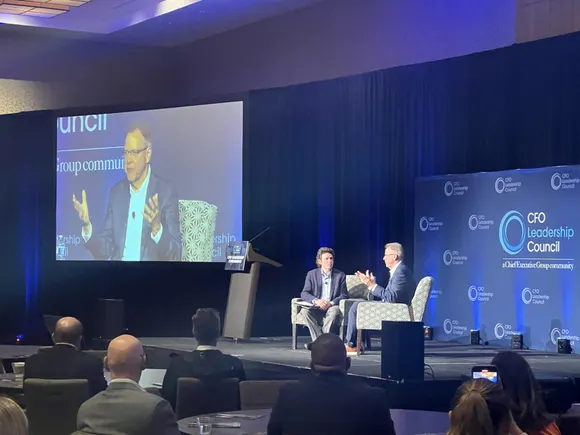Just days after President Donald Trump announced he would hike steel and aluminum tariffs from 25% to 50%, Conagra Brands CFO David Marberger on Tuesday reiterated that the snack and frozen food company will seek to offset the duties’ impact.
“We’re big in canned goods,” Marberger said during a wide-ranging keynote interview at the CFO Leadership Council’s spring conference in Boston. “So, with the steel tariffs that went up 50%…that affects us, so we’ll work through how we’ll mitigate that.”
Trump doubled steel and aluminum tariffs on Wednesday in a move that sent turmoil across the food packaging industry. Marberger highlighted the importance of communication as the trade situation rapidly unfolds.
“It’s a tough environment because everything is changing all the time,” he said during the keynote, noting that initially he questioned whether there would be enough to discuss at a weekly standing tariff meeting. “Inevitably we have something to talk about because something always changes.”
After the talk Tuesday, Marberger declined to comment further on the plans for mitigation and pointed to previous comments made by the company.
In April during the company’s earnings call, Marberger said Slim Jim maker was closely monitoring tariff policy changes and the implications for its business.
“We do expect to be impacted by the previously announced US tariffs on tin mill steel and aluminum and to a much more modest extent Chinese imports,” he said, according to a transcript of the call.
At the time, the Chicago-based company said they only expected a “limited impact” from tariffs on its fiscal Q4 expenses as it was working through inventory it had on hand, according to executives on the call. “We will look to offset any cost increases through a combination of alternative sourcing methods, cost savings initiatives and targeted price adjustments,” Marberger said.
The company buys a lot of tin plate steel for cans it uses for packaging outside the U.S. because “something like 75% of the tin plate steel lines in the U.S. have been eliminated since 2018, leaving manufacturers in a position where they have no choice but to source these things overseas,” Conagra CEO Sean Connolly said on the call.
Source link
